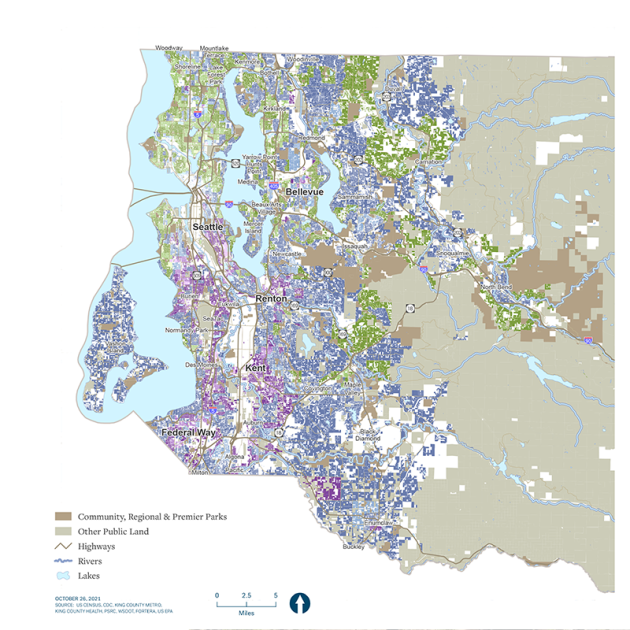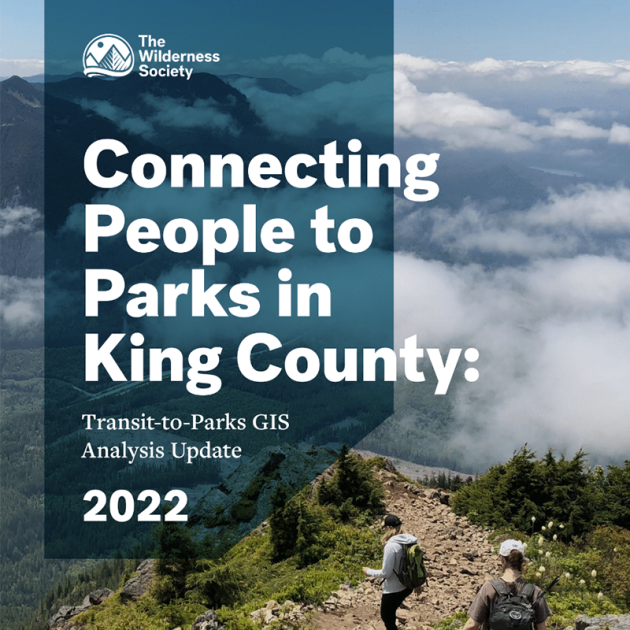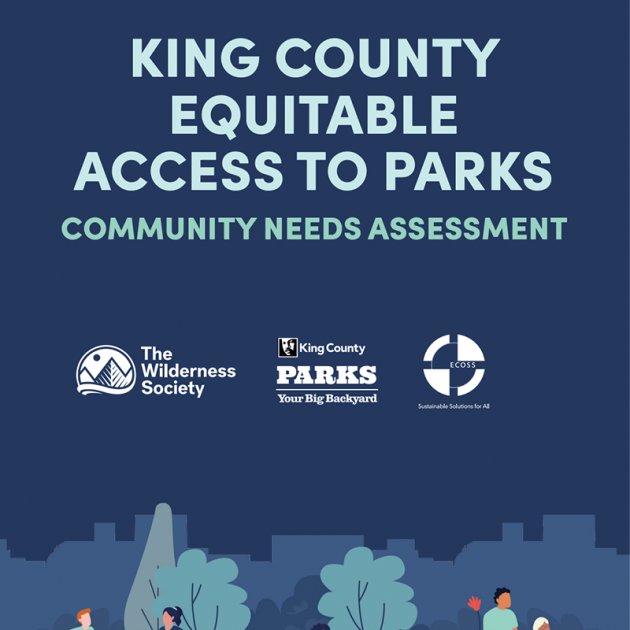Urban to Wild Seattle Resource Page
A collection of reports on people, parks and access in King County.
All people need and deserve places where they can enjoy nature and live healthy lives. And with more than 80% of the U.S. population now residing in cities, it is more important than ever to focus on green spaces in urban places. But many urban communities lack equitable access to nature, and after decades of discriminatory planning and development policies, communities of color are far more likely to face challenges accessing parks and green space. That’s why we launched the Urban to Wild program.
Below are reports and resources our Urban to Wild program has launched.
Everyone should have meaningful access to nature regardless of income level or background, whether it be your local green space, a national park, or a wilderness area. Our StoryMap is an interactive tool and visual representation of the culmination of years of research looking at the relationship between parks and transit access.
In 2019, TWS’s Urban to Wild (U2W) program conducted a transit-to-parks mapping analysis that revealed inequities in transit and green space distribution in King County. Since the release of the original report, we have experienced a global pandemic that has upended lives and affected the state of transit, outdoor recreation patterns, and the social landscape. These changes and new program and policy efforts to increase access to transit and the outdoors have led to this updated report that uses recent data. This update shares new maps and revised recommendations to drive U2W advocacy priorities.
2019 report links:
Access to nature and safely spending time outdoors is critical to our health and well-being. Yet, many communities across the country–particularly low-income communities and communities of color–continue to face barriers to getting outside. To better understand these disparities, The Wilderness Society, King County Parks, and the ECOSS partnered with local organizations and community members to assess community needs, priorities, and recommendations around increasing equitable access to transit and parks across King County. The resulting assessment identified real day-to-day challenges that community members face in reaching parks and green spaces and surfaced solutions based on the needs of residents.



